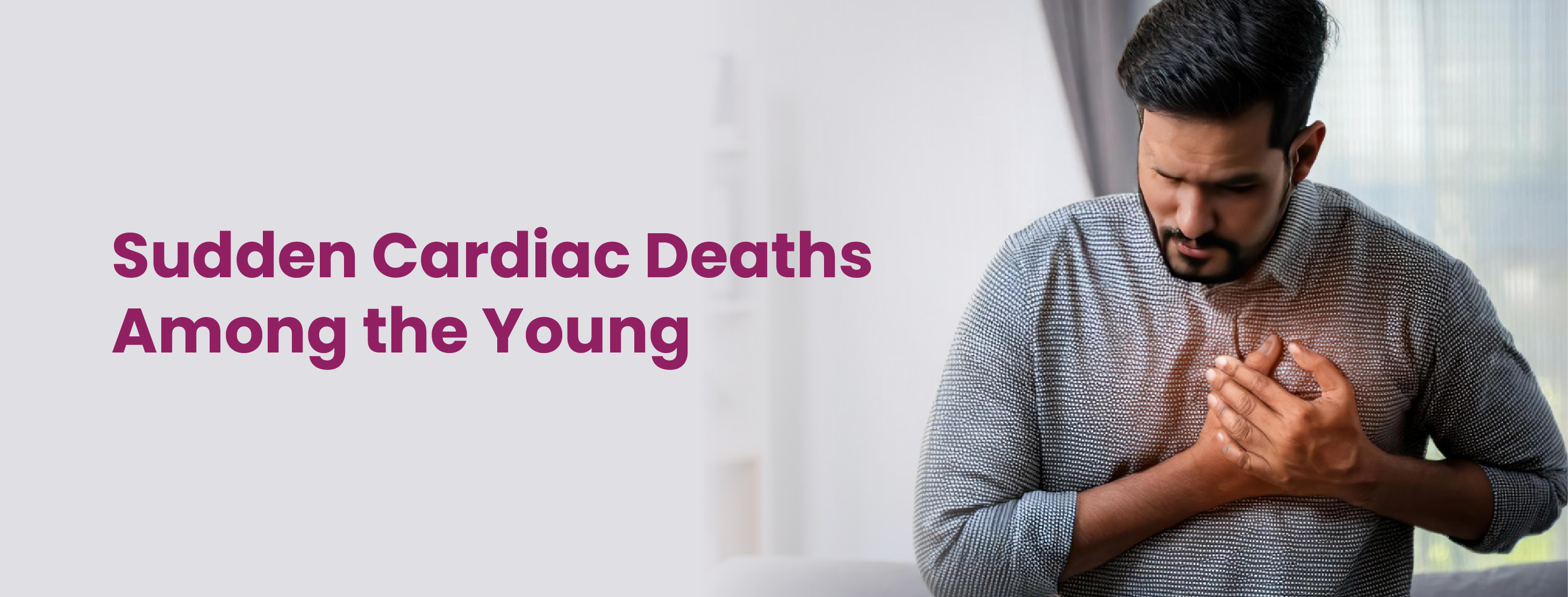
Monday, 22 September, 2025
Across India, cardiologists are witnessing a shift that should worry every family. Sudden cardiac death in young adults is no longer a rare occurrence. Heart attacks, cardiac arrests, and rhythm disorders, once confined to people in their 40s and 50s, are increasingly striking those in their late twenties and early thirties, sometimes even younger. Every heart hospital in Bangalore is seeing more cases of young patients arriving with blocked arteries or collapsing from sudden cardiac arrest.
Numbers Behind the Rise
Recent data paint a grim picture. The Indian Council of Medical Research reports that sudden cardiac deaths among those under 40 have risen sharply over the past decade.
This early onset is partly due to genetic predisposition, but lifestyle factors unique to India—dietary changes, urban stress, and smoking are accelerating the trend. What once seemed like rare exceptions are now regular cases.
Everyday Habits Driving Early Heart Disease
1. Irregular Sleep
Students, IT professionals, and entrepreneurs often get less than six hours of sleep a night. This chronic deprivation raises cortisol and other stress hormones, disrupts metabolism, and increases blood pressure, key triggers for heart rhythm disturbances and heart attacks.
Students, IT professionals, and entrepreneurs often sleep less than six hours a night. Chronic deprivation raises stress hormones, disrupts metabolism, and increases blood pressure are well-known reasons of heart attack in young age.
2. Dietary Shifts
Processed snacks, fried foods, sugary drinks, and late-night deliveries are replacing balanced meals. Over time, these choices lead to obesity, cholesterol buildup, and arterial blockages, raising the risk of a heart attack at a young age.
3. Sedentary Lifestyle
Young Indians spend 10–12 hours sitting at desks, during commutes, or in front of screens. One gym workout a day cannot offset prolonged inactivity. This imbalance increases obesity, insulin resistance, and arterial stiffness.
4. Smoking and Vaping
Both remain dangerous triggers for early heart attacks. The misconception that vaping is safer has worsened the problem. Nicotine in any form damages arteries and speeds up clot formation, often leading to sudden cardiac death in young adults.
5. Stress
Workplace competition, academic demands, and financial pressures all contribute to hypertension and anxiety-related arrhythmias. Chronic stress is a major but often overlooked reason of heart attack in young age.
6. Substance Use
Alcohol, stimulants, and energy drinks are often consumed before or after workouts; they strain the heart, increasing the risk of rhythm disorders and sudden collapse.
Why Standard Tests Fall Short
Traditional screening tools like ECGs, blood tests, and treadmill stress tests are important, but they have limitations. Many younger patients have soft plaque in their arteries, unstable deposits that are prone to rupture. These don’t always show up in routine tests, one reason why many are left asking what causes cardiac arrest in young adults despite having “normal” reports.
That’s why advanced markers such as ApoB, hs-CRP, and LP-PLA2 are gaining importance. These can detect hidden risks linked to inflammation and plaque instability.
A coronary CT angiogram is especially valuable. It provides a direct look at arteries and can detect blockages early, even in patients who appear healthy. At Kauvery Hospitals, we recommend CT angiograms for young adults. If you have a family history, smoke, or carry multiple risk factors. If you’re unsure when to see a cardiologist, this test can often provide clarity and peace of mind.
Eating for the Indian Heart
India’s diversity makes diet advice complex, but cardiologists emphasize practical, culturally adaptable choices:
- Replace refined carbs like white rice and maida with millets, brown rice, or whole wheat.
- Prefer dals, sprouts, and vegetables over packaged or fried foods.
- Use oils like mustard, groundnut, or sunflower in moderation.
- Choose fish, eggs, and lean poultry instead of red or processed meats.
- Reduce sweets, fried snacks, and heavy late-night meals.
- Drink water, buttermilk, or tender coconut water instead of sugary beverages.
These changes don’t demand drastic shifts but help lower the silent risk of early heart disease.
What Young Indians Should Do
If you are over 25 and have a family history of heart disease, diabetes, or hypertension, it’s time to take preventive steps:
- Get annual checkups for blood pressure, cholesterol, and blood sugar.
- Don’t ignore chest discomfort, palpitations, or unusual fatigue, these could be early signs of a heart emergency.
- Quit smoking and vaping. Limit alcohol.
- Prioritize 7–8 hours of sleep daily.
- Balance workouts with rest and recovery. Avoid stimulants or energy drinks around exercise.
- Control portion sizes, and avoid late-night heavy meals.
- Discuss with your doctor whether advanced screening (like a CT angiogram) is right for you.
Protecting India’s Young Hearts
The younger face of heart disease is not a Western phenomenon. It is an Indian reality, one that demands urgent attention.
“Thirty is the new forty” may sound like a catchphrase, but it reflects the reality that our youth are aging faster on the inside. Unless we take prevention seriously, sudden cardiac deaths will continue to rob families of their loved ones too soon.
At Kauvery Hospitals, our event theme Protect Young Hearts is a reminder that awareness and prevention are as important as treatment. Respect your heart early. Care for it consistently. Because prevention, not cure, is the only true safeguard for India’s young generation. If you’re looking for expert guidance, consult a cardiologist in Bangalore today.


 Neurosciences
Neurosciences Bariatric Surgery
Bariatric Surgery